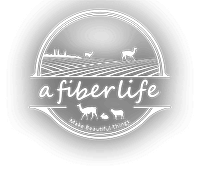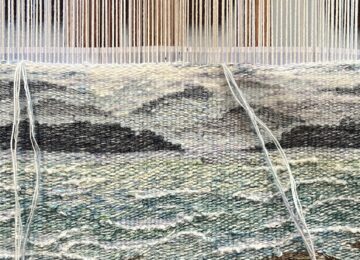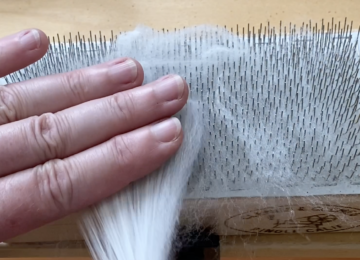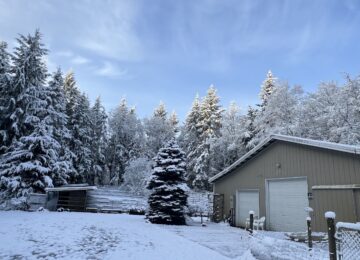So, why do I write this podcast? I want to answer that question because it’s important. Basically, I write it because I need it. I need to do what artists do. I need to step back and see things from a distance, to take it all in. To zoom out and see the full picture. And when I do that, I can see and understand my life as a whole. And that helps because, boy, this last year was tough. And for a while, all I saw was pain.
Writing season 2 helped us get through it all. Each episode helped me find a different perspective. You know, our farm is named “Aliento,” which means “breath.” Whether it’s a walk on the beach, or writing a story to get to the deep healing truth, this last season has brought new meaning to that word “Aliento.” Now, the idea of “breath” means finding the pause to find the words to write the stories, and then exhaling by telling them to all of you. “Aliento” is much more than finding clean air in the Pacific Northwest. It’s the breath that helps me settle in. Because when I write, I can breathe.
I think of it like this: life is a series of experiences, some small and some large, many are difficult and challenging. Others are immensely beautiful and awe inspiring. The thing is, unless we find a way to reflect on those experiences or tell stories about them or write them down, they can fly away into the recesses of our brains, and just sit there as fleeting images or feelings. But when we dive into them, through writing and storytelling we are able to see the bigger picture. Much like what happens when we walk on the beach, we see the vastness of our lives, we take a breath, we pause and things come into focus, puzzle pieces come together. Sometimes writing helps you feel calmer and like you can carry on. Always, things seem much better because you’ve paused to take a breath.
This is the last episode of season 2. In this episode, I dive into the question, why do I write this podcast? What does reflection of this kind mean to me and others? And when the magic seems dimmed, how can we get it back? I talk to Laura Davis, author, writing teacher and retreat leader about the act of writing and its healing potential especially when it’s shared with others. Greg and I reflect on the podcast season and our farm life. And you won’t want to miss this—while at the beach where something very, very special happens. I’ll take stock of where things are right now on the farm, and show you how writing really does lead to magic. So if you are feeling like you can’t see the forest through the trees, like you need to have some time to breathe, this episode is for you.
Jumping back to several years ago, when I first closed my private practice as a therapist and decided to move to Whidbey Island and raise fiber animals, I signed myself up for a writing retreat. Specifically, a retreat that was focused on grief, transition, loss, and uncertainty. It might sound like 5 days of dragging yourself through mud, but it wasn’t like that at all. Mainly because it was a retreat led by one of my now dear friends, Laura Davis. She is the author of seven books. The first of which was the courage to heal, which came out when I was in grad school. It helped crack open the subject of sexual abuse for millions of women. And her latest book is a memoir called The Burning Light of Two Stars. It’s about a very challenging mother/daughter relationship. Laura is an amazing retreat leader, and I’ve learned so much about using writing as a tool for healing and transformation from her.
That grief retreat in California helped me process my life transition so well, I decided to talk with Laura about writing and why it is so helpful.
“Writing is such an incredibly powerful way in the space of that retreat, the sacred space,” Laura explained to me. “It really lets you peel back your contemporary life and go really deep inside about what am I hungry for, you know, what is wanting to be born? What’s what is my soul asking for, and then to just be really supportive. And to hold that empty space. That’s the hardest of like, you kind of have one foot in one world, but it doesn’t, it feels old and stale, and but you really want to move into another world. That’s where you were at when you came to that retreat.”
“I was totally there. I was,” I said. “I mean, I was still seeing clients, but I was really done. I was really, really done. And I didn’t know how not to be a therapist anymore.”
“Where would you be if you weren’t a therapist?,” Laura said, reminding me of the question she asked me back then.
“That was like, I didn’t even know to ask that question,” I said. “So let me ask you this; I knew that I needed to go write about my transition, I needed the space to process. But what is it that is so healing about writing? For instance, about grief or transition? What, what is it?”
“Writing is a fantastic way to get in touch with our deeper selves. And to get that under a story, where real change comes from,” Laura said. “So I think that’s incredibly powerful, just writing by itself. But what I like to create is a situation where you’re writing in a community of people who have all committed to the same kind of exploration. And it’s not just that you write it, but that you then get witnessed, and that people receive and hear what you have to say.”
Laura paused for a moment to collect her thoughts on the topic.
“Writing is like the inhalation and reading out loud is like the exhalation. So actually reading what you’ve written, and having it witnessed is part of the process. And we often don’t know what it is we’ve written, until we say it out loud.”
At the retreat, I wrote about leaving clients and closing down my office, but there was a deeper truth that I needed to express. Once I started to tell the truth about my life in Sacramento, the fact that I was shriveling up with so much concrete and so little open land, I couldn’t undo what I saw. And I felt so well listened to–with compassion and love at the retreat. Laura says there’s a reason for that.
“When people really tell the truth, it’s like, we’re all hungry for that level of communication. And our daily lives don’t generally allow for it. And that’s why, you know, a writing retreat, like the one you went to, is transformative. You could be going through something like what you’re going through, which was, “I’m done with this part of my life, it feels stale, it feels old, something in me as awake, waking up and wanting something new, but I’m terrified, you know, of the void.” It could be someone grieving a death, it could be someone who has empty nest, you know, their kids are just leaving home, it could be someone dealing with a diagnosis or displacement or grief over our country. What’s happened, I mean, any level of grief, I think really matters. And also can be, when it’s met with compassion, and deep listening, it becomes transformed. So I think that’s why it’s so powerful.“
“I totally agree,” I said. “And I think in a group process, the courage if someone else is being brave, to tell the truth, and to read it, it helps me feel safer and feel inspired to be even more authentic, or even more tell even more truth that I might not do if someone else didn’t take the risk.”
Since the retreat, I have dug into my writing as a way to get to the truth and to really see what the stories I write are trying to teach me. And I really love that I can share these on the podcast.









